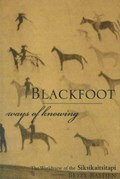Narrow Results By
Seen but not seen : influential Canadians and the First Nations from the 1840s to today
https://archives.whyte.org/en/permalink/catalogue25536
- Medium
- Library - Book (including soft-cover and pamphlets)
- Published Date
- 2021
- Author
- Smith, Donald B.
- Publisher
- Toronto, Ontario : University of Toronto Press
- Call Number
- 08.3 Smi5s
- Author
- Smith, Donald B.
- Publisher
- Toronto, Ontario : University of Toronto Press
- Published Date
- 2021
- Physical Description
- xxxii, 451 pages : illustrations, maps, portraits ; 23 cm
- Subjects
- Ethnic groups
- Indigenous
- Politics
- History-Canada
- Abstract
- Throughout the nineteenth and most of the twentieth century, the majority of Canadians argued that European "civilization" must replace Indigenous culture. The ultimate objective was assimilation into the dominant society. Seen but Not Seen explores the history of Indigenous marginalization and why non-Indigenous Canadians failed to recognize Indigenous societies and cultures as worthy of respect. Approaching the issue biographically, Donald B. Smith presents the commentaries of sixteen influential Canadians - including John A. Macdonald, George Grant, and Emily Carr - who spoke extensively on Indigenous subjects. Supported by documentary records spanning over nearly two centuries, Seen but Not Seen covers fresh ground in the history of settler-Indigenous relations. -- From back cover
- Contents
- John A. Macdonald and the Indians ; John McDougall and the Stoney Nakoda ; George Monro Grant: an English Canadian Public Intellectual and the Indians ; Chancellor John A. Boyd and Fellow Georgian Bay Cottager Kathleen Coburn ; Duncan Campbell Scott: Determined Assimilationist ; Paul A.W. Wallace and The White Roots of Peace ; Quebec Viewpoints: From Lionel Groulx to Jacques Rousseau ; Attitudes on the Pacific coast: Franz Boas, Emily Carr, and Maisie Hurley ; Alberta Perspectives: Long Lance, John Laurie, Hugh Dempsey, and Harold Cardinal ; Epilogue: First Nations and Canada's Conscience
- ISBN
- 9781442649989
- Accession Number
- 2022.13
- Call Number
- 08.3 Smi5s
- Collection
- Archives Library
This material is presented as originally created; it may contain outdated cultural descriptions and
potentially offensive content.
Read more.
Brotherhood to nationhood : George Manuel and the making of the modern indian movement
https://archives.whyte.org/en/permalink/catalogue25528
- Medium
- Library - Book (including soft-cover and pamphlets)
- Published Date
- 2020
- Author
- McFarlane, Peter and Manuel, Doreen
- Publisher
- Toronto : Between the Lines
- Call Number
- 07.2 M16a
- Publisher
- Toronto : Between the Lines
- Published Date
- 2020
- Physical Description
- xxvi, 311 pages : illustrations ; 23 cm
- Subjects
- Indigenous
- History
- History-Canada
- Colonialism
- Politics
- Abstract
- George Manuel was the strategist and visionary behind the modern Indigenous movement in Canada. A three-time Nobel Peace Prize nominee, he laid the groundwork for what would become the Assembly of First Nations and was the founding president of the World Council of Indigenous Peoples. Authors Peter McFarlane and Doreen Manuel follow him on a riveting journey from his childhood on a Shuswap reserve through three decades of fierce and dedicated activism. In these pages, an all-new foreword by celebrated Mi'kmaq lawyer and activist Pam Palmater is joined by an afterword from Manuel's granddaughter, land defender Kanahus Manuel. This edition features new photos and previously untold stories of the pivotal roles that the women of the Manuel family played--and continue to play--in the battle for Indigenous rights.
- ISBN
- 9781771135108
- Accession Number
- P2021.02
- Call Number
- 07.2 M16a
- Collection
- Archives Library
This material is presented as originally created; it may contain outdated cultural descriptions and
potentially offensive content.
Read more.
Indigenous methodologies : characteristics, conversations, and contexts
https://archives.whyte.org/en/permalink/catalogue25730
- Medium
- Library - Book (including soft-cover and pamphlets)
- Published Date
- 2021
- Author
- Kovach, Margaret
- Publisher
- Toronto ; Buffalo ; London : University of Toronto Press
- Call Number
- 07.2 K84i
- Author
- Kovach, Margaret
- Publisher
- Toronto ; Buffalo ; London : University of Toronto Press
- Published Date
- 2021
- Physical Description
- xii, 313 pages : illustrations ; 23 cm
- Abstract
- An innovative and important contribution to Indigenous research approaches, this revised second edition provides a framework for conducting Indigenous methodologies, serving as an entry point to learn more broadly about Indigenous research. -- Provided by publisher.
- Contents
- Prologue: opening the circle -- Introduction -- Part One: Starting Indigenous methodologies -- Indigenous methodologies and qualitative inquiry -- Indigenous conceptual framing in Indigenous methodologies -- Part Two: Four foundations: Indigenous conceptual framing in Indigenous methodologies -- Epistemology and research: centring Indigenous knowledges -- Indigenous ethics and axiology: miny´o (A Good Way) -- Engaging with the Indigenous community in research -- Preparations: situating self, culture, and purpose in Indigenous methodologies -- Part Three: Applying Indigenous methodologies -- Story and method in Indigenous methodologies -- Indigenous theorizing -- Analysing, interpreting, and meaning making -- Presenting findings, metamorphic framing, and representation -- Oral dissemination and capacity building in Indigenous methodologies -- Part Four: Indigenous methodologies strong -- Conclusion: decolonizing the academy through asserting Indigenous methodologies -- Closing circle words and an epilogue.
- ISBN
- 9781487525644
- Accession Number
- P2023.15
- Call Number
- 07.2 K84i
- Collection
- Archives Library
This material is presented as originally created; it may contain outdated cultural descriptions and
potentially offensive content.
Read more.
Carrying the burden of peace : reimagining Indigenous masculinities through story
https://archives.whyte.org/en/permalink/catalogue25728
- Medium
- Library - Book (including soft-cover and pamphlets)
- Published Date
- 2021
- Author
- McKegney, Sam
- Publisher
- Regina, Saskatchewan, Canada : University of Regina Press
- Call Number
- 07.2 M19c
- Author
- McKegney, Sam
- Publisher
- Regina, Saskatchewan, Canada : University of Regina Press
- Published Date
- 2021
- Physical Description
- xxxiii, 263 pages : illustrations ; 24 cm
- Subjects
- Indigenous
- Indigenous Culture
- Indigenous Customs
- Indigenous Peoples
- Indigenous Traditions
- Masculinity
- Canada
- History
- Abstract
- Through rigorous engagement with Indigenous literary art, Carrying the Burden of Peace highlights the decolonial potential of Indigenous masculinities. Can a critical examination of Indigenous masculinities be an honour song--one that celebrates rather than pathologizes; one that seeks diversity and strength; one that overturns heteropatriarchy without centering settler colonialism? Can a critical examination of Indigenous masculinities even be creative, inclusive, erotic? Carrying the Burden of Peace answers affirmatively. Countering the perception that masculinity has been so contaminated as to be irredeemable, the book explores Indigenous literary art for understandings of masculinity that exceed the impoverished inheritance of colonialism. Carrying the Burden of Peace weaves together stories of Indigenous life, love, eroticism, pain, and joy to map the contours of diverse, empowered, and non-dominant Indigenous masculinities. It is from here that a more balanced world may be pursued. -- Provided by publisher.
- Contents
- Indigenous masculinities and story -- Shame and deterritorialization -- Journeying back to the body -- De(f/v)iant generosity: gender and the gift -- Masculinity and kinship -- Naked and dreaming forward: a conclusion.
- ISBN
- 9780889777934
- Accession Number
- P2023.15
- Call Number
- 07.2 M19c
- Collection
- Archives Library
This material is presented as originally created; it may contain outdated cultural descriptions and
potentially offensive content.
Read more.
Blackfoot ways of knowing : the worldview of the Siksikaitsitapi
https://archives.whyte.org/en/permalink/catalogue26211
- Medium
- Library - Book (including soft-cover and pamphlets)
- Published Date
- 2023
- Author
- Bastien, Betty
- Publisher
- Calgary : University of Calgary Press
- Edition
- 9th printing
- Call Number
- 07.2 B29b
- Author
- Bastien, Betty
- Responsibility
- Ju¨rgen W. Kremer, editor ; Duane Mistaken Chief, language consultant.
- Edition
- 9th printing
- Publisher
- Calgary : University of Calgary Press
- Published Date
- 2023
- Physical Description
- xx, 235 pages : illustrations, portraits ; 23 cm
- Subjects
- Blackfoot
- Siksikaitsitapi
- Indigenous
- Indigenous Culture
- Indigenous Customs
- Indigenous People
- Indigenous Traditions
- Indigenous Language
- Abstract
- The worldview of the Siksikaitsitapi is a journey into the heart and soul of Blackfoot culture. In sharing her personal story of coming home to reclaim her identity within that culture, Betty Bastien offers us a gateway into traditional Blackfoot ways of understanding and experiencing the world. As a scholar and researcher, Bastien is also able to place Blackfoot tradition within the context of knowledge building among indigenous peoples generally, and within an historical context of precarious survival amid colonial displacement and cultural genocide. -- From back cover
- Contents
- Context -- Introduction -- Innahkootaitsinnika'topi -- History of the Blackfoot-speaking tribes -- Introductory remarks -- Iitotasimahpi Iimitaiks -- The era of the dog or the time of the ancestors (Pre-eighteenth century) -- Ao'ta'sao'si Ponokaomita -- the era of the horse (eighteeneth century to 1880) -- Ao'maopao'si -- from when we settled in one place (1880) to today -- Cultural destruction -- policies of ordinary genocide -- Tribal protocol and affirmative inquiry -- Niinohkanistssksinipi -- Speaking personally -- Traditional knowledge in academe -- Cultural affirmation -- Protocol of affirmative inquiry -- Affirmation of indigenous knowledge -- Kakyosin -- traditional knowledge -- Kiitomohpiipotoko -- ontological responsibilities -- Siksikaitsitapi ways of knowing -- epistemology -- Knowledge is coming to know Ihtsipaitapiiyo'pa -- Kakyosin/Mokaksin -- Indigenous learning -- Niisi'powahsinni-language -- Aipommotsspistsi -- transfers -- Kaaahsinnooniksi -- grandparents -- Conclusion: renewal of ancestral responsibilities as antidote to genocide -- Deconstructing the colonized mind -- Eurocentred and Niitsitapi identity -- Reflections and implications.
- ISBN
- 9781552381090
- Accession Number
- P2023.25
- Call Number
- 07.2 B29b
- Collection
- Archives Library
This material is presented as originally created; it may contain outdated cultural descriptions and
potentially offensive content.
Read more.
Aboriginal TM : the cultural and economic politics of recognition
https://archives.whyte.org/en/permalink/catalogue25713
- Medium
- Library - Book (including soft-cover and pamphlets)
- Published Date
- 2022
- Author
- Adese, Jennifer
- Publisher
- Winnipeg, Manitoba, Canada : University of Manitoba Press
- Call Number
- 07.2 A3a
- Author
- Adese, Jennifer
- Publisher
- Winnipeg, Manitoba, Canada : University of Manitoba Press
- Published Date
- 2022
- Physical Description
- x, 260 pages : illustrations ; 24 cm
- Subjects
- Indigenous
- Indigenous Culture
- Indigenous People
- Indigenous Traditions
- Tourism
- Language
- Politics
- Abstract
- In Aboriginal™, Jennifer Adese explores the origins, meaning, and usage of the term "Aboriginal" and its displacement by the word "Indigenous." In the Constitution Act, 1982, the term's express purpose was to speak to the "aboriginal rights" acknowledged in Section 35(1). Yet in the wake of the Constitution's passage, Aboriginal, in its capitalized form, became far more closely aligned with Section 35(2)'s interpretation of which specific groups held those rights, and was increasingly used to describe and categorize people. More than simple legal and political vernacular, the term Aboriginal (capitalized or not) has had real-world consequences for the people it defined. Aboriginal™ argues the term was a tool used to advance Canada's cultural and economic assimilatory agenda throughout the 1980s until the mid-2010s. Moreover, Adese illuminates how the word engenders a kind of "Aboriginalized multicultural" brand easily reduced to and exported as a nation brand, economic brand, and place brand--at odds with the diversity and complexity of Indigenous peoples and communities. In her multi-disciplinary research, Adese examines the discursive spaces and concrete sites where Aboriginality features prominently: the Constitution Act, 1982; the 2010 Vancouver Olympics; the "Aboriginal tourism industry"; and the Vancouver International Airport. Reflecting on the term's abrupt exit from public discourse and the recent turn toward Indigenous, Indigeneity, and Indigenization, Aboriginal™ offers insight into Indigenous-Canada relations, reconciliation efforts, and current discussions of Indigenous identity, authenticity, and agency. -- Provided by publisher.
- Contents
- Introduction -- 1. Aboriginal, aboriginality, aboriginalism, aboriginalization: what's in a word? -- Aboriginalized multiculturalism tm: Canada's olympic national brand -- Selling Aboriginal experiences and authenticity: Canadian and Aboriginal tourism -- Marketing aboriginality and the branding of place: the case of Vancouver international airport -- Conclusion: thoughts on the end of aboriginalization and the turn to indigenization.
- Notes
- Title appears with the trademark symbol after the word "Aboriginal".
- ISBN
- 9781772840056
- Accession Number
- P2023.09
- Call Number
- 07.2 A3a
- Collection
- Archives Library
This material is presented as originally created; it may contain outdated cultural descriptions and
potentially offensive content.
Read more.
Bead by bead : constitutional rights and Métis community
https://archives.whyte.org/en/permalink/catalogue25524
- Medium
- Library - Book (including soft-cover and pamphlets)
- Published Date
- 2021
- Publisher
- Vancouver, British Columbia : University of British Columbia Press
- Call Number
- 07.2 B71b
- Responsibility
- Edited by Yvonne Boyer and Larry Chartrand
- Publisher
- Vancouver, British Columbia : University of British Columbia Press
- Published Date
- 2021
- Physical Description
- xii, 221 pages ; 24 cm
- Subjects
- Indigenous
- Metis
- Canada
- Politics
- Colonialism
- Identity
- Abstract
- What does the phrase Me´tis peoples mean in constitutional terms? As lawyers and scholars dispute forms of Me´tis identity, and debate the nature and scope of Me´tis rights under the Canadian Constitution, understanding Me´tis experience of colonization is fundamental to achieving reconciliation. In Bead by Bead, contributors address the historical denial - at both federal and provincial levels - of outstanding Me´tis concerns and Aboriginal rights claims, in particular with respect to land, resources, and governance. Tackling such themes as ongoing colonial policies, the invisibility of Me´tis women in court decisions, identity politics, and racist legal principles, they uncover the troubling issues that plague Me´tis aspirations for a just future. This nuanced analysis of the parameters that current Indigenous legal doctrines place around Me´tis rights discourse moves beyond a one-size-fits-all definition of Me´tis or a uniform approach to Aboriginal rights. By raising critical questions about self-determination, colonization, kinship, land, and other essential aspects of Me´tis lived reality, these clear-eyed essays go beyond legal theorizing and create pathways to respectful, inclusive Me´tis-Canadian constitutional relationships. (Provided by Publisher)
- Contents
- Me´tis identity captured by law: struggles over use of the category Me´tis in Canadian law / Se´bastien Grammond ; Recognition and reconciliation: recent developments in Me´tis rights law / Thomas Isaac ; Shifting the status quo: the duty to consult and the Me´tis of British Columbia / Christopher Gall and Brodie Douglas ; The resilience of Me´tis title: rejecting assumptions of extinguishment / Karen Drake and Adam Gaudry ; Where are the women? Analyzing the three Me´tis Supreme Court of Canada decisions / Brenda L. Gunn ; Manitoba Me´tis Federation and Daniels: "post-legal" reconciliation and Western Me´tis / Jeremy Patzer ; Colonial ideologies: the denial of Me´tis political identity in Canadian law / D'Arcy Vermette ; Me´tis Aboriginal rights: four legal doctrines / Darren O'Toole ; Suzerainty, sovereignty, jurisdiction: the future of Me´tis ways / Signa A. Daum Shanks.
- ISBN
- 9780774865975
- Accession Number
- P2022.04
- Call Number
- 07.2 B71b
- Collection
- Archives Library
This material is presented as originally created; it may contain outdated cultural descriptions and
potentially offensive content.
Read more.
Remembering our relations : De¨nesu liné oral histories of Wood Buffalo National Park
https://archives.whyte.org/en/permalink/catalogue26250
- Medium
- Library - Book (including soft-cover and pamphlets)
- Published Date
- 2023
- Publisher
- Calgary, Alberta : University of Calgary Press
- Call Number
- 07.2 At3r
- Responsibility
- Athabasca Chipewyan First Nation with Sabina Trimble and Peter Fortna.
- Publisher
- Calgary, Alberta : University of Calgary Press
- Published Date
- 2023
- Physical Description
- xxxiii, 307 pages cm
- Subjects
- Indigenous
- Indigenous Culture
- Indigenous Customs
- Indigenous People
- Indigenous Traditions
- Oral History
- Athabasca Chipewyan First Nations
- Wood Buffalo National Park
- Alberta
- British Columbia
- Abstract
- Elders and leaders remind us that telling and amplifying histories is key for healing. Remembering Our Relations is an ambitious collaborative oral history project that shares the story of Wood Buffalo National Park and the De¨nesu line´ peoples it displaced. Wood Buffalo National Park is located in the heart of De¨nesu line´ homelands, where Dené people have lived from time immemorial. Central to the creation, expansion, and management of this park, Canada’s largest at nearly 45, 000 square kilometers, was the eviction of De¨nesu line´ people from their home, the forced separation of Dene families, and restriction of their Treaty rights. Remembering Our Relations tells the history of Wood Buffalo National Park from a Dene perspective and within the context of Treaty 8. Oral history and testimony from Dene Elders, knowledge-holders, leaders, and community members place De¨nesu line´ voices first. With supporting archival research, this book demonstrates how the founding, expansion, and management of Wood Buffalo National Park fits into a wider pattern of promises broken by settler colonial governments managing land use throughout the twentieth and twenty-first centuries. By prioritizing De¨nesu line´ histories Remembering Our Relations deliberately challenges how Dene experiences have been erased, and how this erasure has been used to justify violence against De¨nesu line´ homelands and people. Amplifying the voices and lives of the past, present, and future, Remembering Our Relations is a crucial step in the journey for healing and justice De¨nesu line´ peoples have been pursuing for over a century. -- Provided by publisher.
- ISBN
- 9781773854113
- Accession Number
- P2024.02
- Call Number
- 07.2 At3r
- Collection
- Archives Library
This material is presented as originally created; it may contain outdated cultural descriptions and
potentially offensive content.
Read more.
We remember the coming of the white man
https://archives.whyte.org/en/permalink/catalogue26188
- Medium
- Library - Book (including soft-cover and pamphlets)
- Published Date
- 2021
- Author
- Blondin, Walter; Blondin, George; Goose, Leanne; Mountain, Antoine; Stewart, Sarah; Yakeleya, Raymond; and Dene Elders; foreword by Blondin, Walter.
- Publisher
- Calgary, Alberta, Canada : Durvile & UpRoute Books
- Call Number
- 07.2 St4w
- Responsibility
- Edited by Sarah Stewart and Raymond Yakeleya
- Publisher
- Calgary, Alberta, Canada : Durvile & UpRoute Books
- Published Date
- 2021
- Physical Description
- xiii, 273 pages : illustrations ; 23 cm + 1 videodisc (4 3/4 in.)
- Subjects
- Dene
- Indigenous
- Indigenous Culture
- Indigenous People
- Indigenous Customs
- Language
- Non-fiction
- Oral History
- Abstract
- Chapters are transcripts of oral histories from the early twentieth century, by ten elders of the Dene people, about the early days of fur trading, guns, and missionaries; their dismay about the way oil and uranium discoveries and pipelines were handled on their land; and the emotional fallout of the signing of Treaty 11.
- Contents
- Preface / Raymond Yakeleya -- Part I, Reflections. Foreward, Walter Blondin -- Treaty 11, Sarah Stewart -- We remember, Raymond Yakeleya -- The Dene nation / Sarah Stewart -- The Métis experience / Colette Poitras -- Part II, The elders remember. The elders / Elizabeth Yakeleya, Sarah Simon, Mary Wilson, Joe Blondin, John Blondin, Isadore Yukon, Johnny Kaye, Jim Edwards Sittichinli, Peter Thompson, Andrew Kunnizzi -- Early days -- Fur, guns, contact -- Family life -- Boat time -- Missionaries -- Oil discovery -- Treaty 11 -- The sickness -- Uranium -- First machines -- The mad trapper -- Canol road -- Mackenzie Valley pipeline -- Time of change -- Part III Stories from the people. Tutichak, Leanne Goose -- How the muskrat created the world / Antoine Mountain, Maurice Mendo -- The slingshot and the songbird / Raymond Yakeleya -- In the land of the Na?àcho / George Blondin -- The drums / George Blondin -- When the white people came / George Blondin -- Acknowledgments -- Authors -- The spirit of nature series.
- Notes
- Companion DVD includes "We remember the coming of the white man" directed by Raymond Yakeleya, 1978, 55 min. Remastered and produced in 2020. Includes director's commentary.
- ISBN
- 9781988824635
- Accession Number
- P2022.14
- Call Number
- 07.2 St4w
- Collection
- Archives Library
This material is presented as originally created; it may contain outdated cultural descriptions and
potentially offensive content.
Read more.
Me´tis rising : living our present through the power of our past
https://archives.whyte.org/en/permalink/catalogue26200
- Medium
- Library - Book (including soft-cover and pamphlets)
- Published Date
- 2022
- Publisher
- Vancouver, British Columbia : Purich Books
- Call Number
- 07.2 B71m
- Responsibility
- Edited by Yvonne Boyer and Larry Chartrand
- Publisher
- Vancouver, British Columbia : Purich Books
- Published Date
- 2022
- Physical Description
- viii, 275 pages : illustrations, maps ; 23 cm
- Abstract
- Me´tis Rising draws on a remarkable cross-section of perspectives to tell the histories, stories, and dreams of people from varied backgrounds, demonstrating that there is no single Me´tis experience - only a common sense of belonging and a commitment to justice. The contributors to this unique collection, most of whom are Me´tis themselves, examine often-neglected aspects of Me´tis existence in Canada. They trace a turbulent course, illustrating how Me´tis leaders were born out of the need to address abhorrent social and economic disparities following the Me´tis-Canadian war of 1885. They talk about the long and arduous journey to rebuild the Me´tis nation from a once marginalized and defeated people; their accounts ranging from personal reflections on identity to tales of advocacy against poverty and poor housing. And they address the indictment of the jurisdictional gap whereby neither federal nor provincial governments would accept governance responsibility towards Me´tis people. Me´tis Rising is an extraordinary work that exemplifies how contemporary Me´tis identity has been forged by social, economic, and political concerns into a force to be reckoned with."-- Provided by publisher.
- Contents
- Part 1: History, Identity, and Belonging -- River Water Flows through Our Veins / Leah Dorion and Curtis Breaton -- What's a Me´tis, Anyway? / Catherine Littlejohn -- The Right to Self-Identify as Me´tis at School / Jonathan Anuik -- Ancestral Knowledge in a Contemporary World / Yvonne Vizina -- Part 2: Leadership and Relationship Building -- Fire Starters and Keepers / Laura-Lee Bellehumeur-Kearns -- Finding a Way around the Jurisdictional Gaps / Tricia Logan -- Navigating Troubled Political Waters for Better Housing / Nathalie Kermoal -- Demanding the Right to Care for Their Own Children / Allyson Stevenson -- Part 3: Exercising Our Rights and Self-Determination -- Who Will Come to Bury You? / Paul Chartrand -- Wiichihiwayshinawn / Margaret Kress -- Stoking the Embers: A Story of Realizing Decolonizing Aims with the Me´tis through Media Agancy / Yvonne Poitras Pratt -- A Me´tis Woman's Journey of Discovery / Judith G. Bartlett
- ISBN
- 9780774880756
- Accession Number
- P2023.23
- Call Number
- 07.2 B71m
- Collection
- Archives Library
This material is presented as originally created; it may contain outdated cultural descriptions and
potentially offensive content.
Read more.
Adjusting the lens : Indigenous activism, colonial legacies, and photographic heritage
https://archives.whyte.org/en/permalink/catalogue25525
- Medium
- Library - Book (including soft-cover and pamphlets)
- Published Date
- 2021
- Publisher
- Vancouver, British Columbia : University of British Columbia Press
- Call Number
- 07.2 L62a
- Responsibility
- Edited by Sigrid Lien and Hilde Wallem Nielssen
- Publisher
- Vancouver, British Columbia : University of British Columbia Press
- Published Date
- 2021
- Physical Description
- vi, 312 pages : illustrations (black & white) ; 24 cm
- Abstract
- Adjusting the Lens explores the role of photography in contemporary renegotiations of the past and in Indigenous art activism. In moving and powerful case studies, contributors analyze photographic practices and heritage related to Indigenous communities in Canada, Australia, Greenland, Norway, Sweden, Finland, and the United States. In the process, they call attention to how Indigenous people are using old photographs in new ways to empower themselves, revitalize community identity, and decolonize the colonial record. Adjusting the Lens presents original research in this emerging field in Indigenous photography studies, juxtaposing the historical and the contemporary across a range of geographically and culturally distinctive contexts. The transnational perspective of this exciting collection challenges old ways of thinking and meaningfully advances the crucially important project of reclamation. -- Provided by publisher
- Contents
- Reading a Regional Colonial Photographic Archive: Residential Schools in Southern Alberta, 1880-1974 / Carol Williams ; Camera Encounters: Bourgeois Settler Women's Adentures in Sami Areas of Norway / Sigrid Lien and Hilde Wallem Nielssen ; Negotiating Meaning: John Moller's Photographs in Early Twentieth-Century Scandinavian Literature / Ingeborg Hovik ; Reclaiming Pasts, Reclaiming Futures: Indigenous Re-workings of Historical Photography in North America / Laura Peers ; Distruption and Testimony: Archival Photographs, Project Naming, and Inuit Memory in Nunavut / Carol Payne, with contributions by Beth Greehorn, Piita Irniq, Manitok Thompson, Deborah Kigjugalik Webster, Sally Kate Webster, and Christina Williamson ; "Our Histories" in the Photographs of Others: Sami Approaches to Archival Visual Materials / Veli-Pekka Lehtola ; The Best Day for Me, Looking at These Old Photos: Returning Photographs to Australian Aboriginal and Torres Straight Islander People by Jane Lydon and Donna Oxenham ; On Being with (a Photograph of) Sugar Bush Womxn: Towards Anishinaabe Feminist Archival Research Methods / waaseyaa'sin Chrisitne Sy ; Indigenous Culture Jamming: Suohpanterror and the Art of Articulating a Sami Political Community by Laura Junka-Aikio ; Negotiating Postcolonial Identity: Photography as Archive, Collaborative Aesthetics, and Storytelling in Contemporary Greenland / Mette Sandbye ; Photographic Portraits as Dialogical Contact Zones: The Portrait Gallery of Sapmi - Becoming a Nation at the Arctic University Museum of Norway / Hanne Hammer Stein ; Photographic Studies and Indigenous Photographies: Some Thoughts on Categories, Assumptions, and Theories / Elizabeth Edwards
- ISBN
- 9780774866613
- Accession Number
- P2022.04
- Call Number
- 07.2 L62a
- Collection
- Archives Library
This material is presented as originally created; it may contain outdated cultural descriptions and
potentially offensive content.
Read more.
The politics of the canoe
https://archives.whyte.org/en/permalink/catalogue25511
- Medium
- Library - Book (including soft-cover and pamphlets)
- Published Date
- 2021
- Publisher
- Winnipeg, Manitoba : University of Manitoba Press
- Call Number
- 07.2 E4t
- Responsibility
- Edited by Bruce Erickson and Sarah Wylie Krotz
- Publisher
- Winnipeg, Manitoba : University of Manitoba Press
- Published Date
- 2021
- Physical Description
- xi, 256 pages : illustrations, maps ; 24 cm
- Subjects
- Indigenous
- Canoeing
- Politics
- History
- History-Canada
- Water
- Abstract
- Popularly thought of as a recreational vehicle and one of the key ingredients of an ideal wilderness getaway, the canoe is also a political vessel. A potent symbol and practice of Indigenous cultures and traditions, the canoe has also been adopted to assert conservation ideals, feminist empowerment, citizenship practices, and multicultural goals. Documenting many of these various uses, this book asserts that the canoe is not merely a matter of leisure and pleasure; it is folded into many facets of our political life. Taking a critical stance on the canoe, The Politics of the Canoe expands and enlarges the stories that we tell about the canoe's relationship to, for example, colonialism, nationalism, environmentalism, and resource politics. To think about the canoe as a political vessel is to recognize how intertwined canoes are in the public life, governance, authority, social conditions, and ideologies of particular cultures, nations, and states. Almost everywhere we turn, and any way we look at it, the canoe both affects and is affected by complex political and cultural histories. Across Canada and the U.S., canoeing cultures have been born of activism and resistance as much as of adherence to the mythologies of wilderness and nation building. The essays in this volume show that canoes can enhance how we engage with and interpret not only our physical environments, but also our histories and present-day societies. -- From back cover
- Contents
- The Politics of the Canoe / Bruce Erickson and Sarah Wylie Krotz ; Tribal Canoe Journeys and Indigenous Cultural Resurgence: A Story from the Heiltsuk Nation / Frank Brown, Hillary Beattie, Vina Brown, and Ian Mauro ; This is What Makes Us Strong: Canoe Revitalization, Reciprocal Heritage, and the Chinnok Indian Nation / Rachel L. Cushman, Jon D. Daehnke, and Tony A. Johnson ; Whaehdoo Eto K'e / John B. Zoe and Jessica Dunkin ; Building Canoe, Knowledge, and Relationships ; Model Canoes, Territorial Histories, and Linguistic Resurgence: Decolonizing the Tappan Adney Archives / Chris Ling Chapman ; Ginawaydaganuc: The Birchbark Canoe in Algonquin Community Resurgence and Reconciliation / Chuck Commanda, Larry McDermott, and Sarah Nelson ; Beyond Birchbark: How Lahontan's Images of Unfamiliar Canores Confirm His Remarkable Western Expedition of 1688 / Peter H. Wood ; Monumental Trip: Don Starkell's Canoe Voyage from Winnipeg to the Mouth of the Amazon / Albert Braz ; The Dam That Wasn't: How the Canoe Became Political on the Petawa River / Cameron Baldassarra ; Unpacking and Repacking the Canoe: Canoe as Research Vessel / Danielle Gendron
- ISBN
- 9780887559099
- Accession Number
- P2022.03
- Call Number
- 07.2 E4t
- Collection
- Archives Library
This material is presented as originally created; it may contain outdated cultural descriptions and
potentially offensive content.
Read more.
Unpapered : writers consider Native American identity and cultural belonging
https://archives.whyte.org/en/permalink/catalogue26195
- Medium
- Library - Book (including soft-cover and pamphlets)
- Published Date
- 2023
- Publisher
- Lincoln : University of Nebraska Press
- Call Number
- 07.2 G46u
- Responsibility
- Edited by Diane Glancy and Linda Rodriguez
- Publisher
- Lincoln : University of Nebraska Press
- Published Date
- 2023
- Physical Description
- xiv, 236 pages : illustrations ; 23 cm
- Subjects
- Indigenous Culture
- Indigenous Customs
- Indigenous People
- Indigenous Traditions
- History
- Turtle Island
- Identity
- Colonialism
- Abstract
- Unpapered is a collection of personal narratives by Indigenous writers exploring the meaning and limits of Native American identity beyond its legal margins. Native heritage is neither simple nor always clearly documented, and citizenship is a legal and political matter of sovereign nations determined by such criteria as blood quantum, tribal rolls, or community involvement. Those who claim a Native cultural identity often have family stories of tenuous ties dating back several generations. Given that tribal enrollment was part of a string of government programs and agreements calculated to quantify and dismiss Native populations, many writers who identify culturally and are recognized as Native Americans do not hold tribal citizenship. With essays by Trevino Brings Plenty, Deborah Miranda, Steve Russell, and Kimberly Wieser, among others, Unpapered charts how current exclusionary tactics began as a response to “pretendians”—non-indigenous people assuming a Native identity for job benefits—and have expanded to an intense patrolling of identity that divides Native communities and has resulted in attacks on peoples’ professional, spiritual, emotional, and physical states. An essential addition to Native discourse, Unpapered shows how social and political ideologies have created barriers for Native people truthfully claiming identities while simultaneously upholding stereotypes --Publisher's description.
- Contents
- Introduction / by Diane Glancy -- Show Your Papers. Paperwork / Kim Shuck -- Things you can do with your chart for calculating quantum of Indian blood / Deborah Miranda -- The white box / Kimberly L. Becker -- Seeking the Indian gravy train / Steve Russell -- Unpapered / Diane Glancy -- Finding the Way. On Chumash Land / Terra Trevor -- A salmon-fishing story / Abigail Chabitnoy -- Confessions of a detribalized mixed-blood / Jeanetta Calhoun Mish -- Thinking with Bigfoot about a Jackpine Savage : cryptogenealogical reflections / Carter Meland -- Identity Wars. "You don't look Indian" / Michele Leonard -- Pretend Indian exegesis : the pretend Indian uncanny valley hypothesis in literature and beyond / Trevino Brings Plenty -- Dead Indians. Live Indians. Legal Indians. / Ron Querry -- The animals' ballgame / Geary Hobson -- We never spoke / Linda Boyden -- Why We Matter. On being Chamorro and belonging to Guam / Craig Santos Perez -- Aunt Ruby's little sister dances / Kimberly Wieser -- Buffalo heads in diners : remnant populations / Denise Dotson Low -- And thus the tribes diminish / Linda Rodriguez.
- ISBN
- 9781496235008
- Accession Number
- P2023.15
- Call Number
- 07.2 G46u
- Collection
- Archives Library
This material is presented as originally created; it may contain outdated cultural descriptions and
potentially offensive content.
Read more.
Indigenous resurgence in an age of reconciliation
https://archives.whyte.org/en/permalink/catalogue26196
- Medium
- Library - Book (including soft-cover and pamphlets)
- Published Date
- 2023
- Publisher
- Toronto [Ontario] ; Buffalo ; London : University of Toronto Press
- Call Number
- 07.2 St2i
- Responsibility
- Edited by Heidi Kiiwetinepinesiik Stark, Aime´e Craft, and Hokulani K Aikau
- Publisher
- Toronto [Ontario] ; Buffalo ; London : University of Toronto Press
- Published Date
- 2023
- Physical Description
- vi, 263 pages : illustrations ; 23 cm
- Subjects
- Indigenous Culture
- Indigenous Customs
- Indigenous People
- Indigenous Traditions
- Reconciliation
- Colonialism
- Identity
- Gender
- Abstract
- What would Indigenous resurgence look like if the parameters were not set with a focus on the state, settlers, or an achievement of reconciliation? Indigenous Resurgence in an Age of Reconciliation explores the central concerns and challenges facing Indigenous nations in their resurgence efforts, while also mapping the gaps and limitations of both reconciliation and resurgence frameworks. The essays in this collection centre the work of Indigenous communities, knowledge, and strategies for resurgence and, where appropriate, reconciliation. The book challenges narrow interpretations of indigeneity and resurgence, asking readers to take up a critical analysis of how settler colonial and heteronormative framings have infiltrated our own ways of relating to our selves, one another, and to place. The authors seek to (re)claim Indigenous relationships to the political and offer critical self-reflection to ensure Indigenous resurgence efforts do not reproduce the very conditions and contexts from which liberation is sought. Illuminating the interconnectivity between and across life in all its forms, this important collection calls on readers to think expansively and critically about Indigenous resurgence in an age of reconciliation.-- Provided by publisher.
- Contents
- Artist Statement / Lianne Marie Leda Charlie -- Introduction: Generating a Critical Resurgence Together / Heidi Kiiwetinepinesiik Stark-- Part 1: Realizing Resurgence Together. 1. Beyond the Grammar of Settler Apologies / Mishuana Goeman -- 2. Spirit and Matter: Resurgence as Rising and (Re)creation as Ethos / Dian Million -- 3. Removing Weeds so Natives Can Grow: A Metaphor Reconsidered / Hokulani K. Aikau -- 4. (Ad)dressing Wounds: Expansive Kinship Inside and Out / Dallas Hunt -- Part 2: Claiming Our Relationships to the Political. 5. Beyond Rights and Wrongs: Towards Resurgence of a Treaty-Based Ethic of Relationality / Gina Starblanket -- 6. Thawing the Frozen Rights Theory: On Rejecting Interpretations of Reconciliation and Resurgence That Define Indigenous Peoples as Frozen in a Pre-colonial Past / Aimée Craft -- 7. Nêhiyaw Hunting Pedagogies and Revitalizing Indigenous Laws / Darcy Lindberg -- Part 3: Narrating Reconciliation and Resurgence. 8. Thinking through Resurgence Together: A Conversation between Sarah Hunt/Tlalilila’ogwa and Leanne Betasamosake Simpson / Sarah Hunt/Tlalilila’ogwa and Leanne Betasamosake Simpson -- 9. Truth-Telling amidst Reconciliation Discourses: How Stories Reshape Our Relationships / Jeff Corntassel -- 10. Political Action in the Time of Reconciliation / Corey Snelgrove and Matthew Wildcat -- Part 4: Reconciling Lands, Bodies, and Gender. 11. Body Land, Water, and Resurgence in Oaxaca / Isabel Altamirano-Jiménez -- 12. To Respect Indigenous Territorial Protocol: Hosting the Olympic Games on Indigenous Lands in Settler Colonial Canada / Christine O’Bonsawin -- 13. “Descendants of the Original Lords of the Soil”: Gender, Kinship, and an Indignant Model of Métis Nationhood / Daniel Voth -- 14. Red Utopia / Billy-Ray Belcourt.
- ISBN
- 9781487544607
- Accession Number
- P2023.10
- Call Number
- 07.2 St2i
- Collection
- Archives Library
This material is presented as originally created; it may contain outdated cultural descriptions and
potentially offensive content.
Read more.
Decolonizing sport
https://archives.whyte.org/en/permalink/catalogue26241
- Medium
- Library - Book (including soft-cover and pamphlets)
- Published Date
- 2023
- Publisher
- Halifax ; Winnipeg : Fernwood Publishing
- Call Number
- 07.2 F77d
- Responsibility
- Edited by Janice Forsyth, Christine O'Bonsawin, Russell Field, and Murray G. Phillips
- Publisher
- Halifax ; Winnipeg : Fernwood Publishing
- Published Date
- 2023
- Physical Description
- xi, 276 pages : illustrations ; 23 cm
- Subjects
- Canada
- History-Canada
- Education
- Sport
- Indigenous
- Indigenous Culture
- Indigenous People
- Indigenous Traditions
- Indigenous Customs
- Abstract
- The path to decolonization is difficult and complex, and can even be contradictory at times, as when an Indigenous community enlists the same corporate sponsor that will destroy its natural environment to provide sport programming for its youth. There is no easy way forward. The Black Lives Matter movement, and their massive followers on social media, propelled forward discussions about the inequities that Covid-19 highlighted with unprecedented momentum. Indigenous people in Canada voiced their concerns in solidarity, calling attention to disparities they faced in everything from impoverished Indigenous health care initiatives to the overrepresentation of Indigenous people in the Canadian justice system, demanding to be heard alongside systemic change. Structural adjustments were afoot, including changes in the professional sport leagues. In both the United States and Canada, people witnessed the toppling of racist sports team names and logos in the spring and summer, not the least of which included the American Washington NFL team (Redskins) and the Canadian Edmonton CFL team (Eskimos). Clearly Indigenous people and their allies saw sport as a part of this desire for social change. This multi-authored collection contributes to that desire by bringing the work of Indigenous and non-Indigenous allied scholars together to explore the history of sport, physical activity, and embodied physical culture in the Indigenous context. Including chapters that address Indigenous topics beyond the political boundaries of Canada, including the US, Australia, New Zealand/Aotearoa, and Kenya, this collection considers questions such as: How can the history of sport (a colonizing practice with European origins) exist in dialogue with Indigenous voices to open up possibilities for reconsidering the history of modern sport? How can Indigenous and anti-oppressive research methodologies/methods inform the study of sport history? What are the ethics and responsibilities associated with conducting an Indigenous sport or recreation history? How can sport history as a discipline be open to the study of traditional land-based recreation? How can the meanings of "sport" be made more inclusive to include a variety of recreational practices? How can sport historians learn from histories of colonization and how can they contribute to a more reciprocal approach to knowledge formation through Indigenous community engagement? How can the discipline of sport history meaningfully support movements of Indigenous resurgence, regeneration, and decolonization? -- Provided by publisher.
- Contents
- Ways of knowing: sport, colonialism, and decolonization / Janice Forsyth, Christine O'Bonsawin, Russell Field -- Beyond competition: an Indigenous perspective on organized sport / Brian Rice -- More than a mascot: how the mascot debate erases Indigenous people in sport / Natalie Welch -- Witnessing painful pasts: understanding images of sports at Canadian Indian residential schools / Taylor McKee and Janice Forsyth -- The absence of Indigenous moving bodies: whiteness and decolonizing sport history / Malcolm MacLean -- # 87: using Wikipedia for sport reconciliation / Victoria Paraschak -- Olympism at face value: the legal feasibility of Indigenous-led Olympic Games / Christine O'Bonsawin -- Canoe racing to fishing guides: sport and settler colonialism in Mi'kma'ki / John Reid -- Transcending colonialism?: rodeos and racing in Lethbridge / Robert Kossuth -- "Men pride themselves on feats of endurance": masculinities and movement cultures in Kenyan running history / Michelle M. Sikes -- Stealing, drinking, and not cooperating: sport and everyday resistance in Aboriginal settlements in Australia / Gary Osmond -- Let's make baseball!: practices of unsettling on the recreational ball diamonds of Tkaronto/Toronto / Craig Fortier and Colin Hastings -- Subjugating and liberating at once: Indigenous sport history as a double-edge sword / Brendan Hokowhitu.
- ISBN
- 9781773636344
- Accession Number
- P2024.02
- Call Number
- 07.2 F77d
- Collection
- Archives Library
This material is presented as originally created; it may contain outdated cultural descriptions and
potentially offensive content.
Read more.
Plants, people, and places : the roles of ethnobotany and ethnoecology in Indigenous peoples' land rights in Canada and beyond
https://archives.whyte.org/en/permalink/catalogue25723
- Medium
- Library - Book (including soft-cover and pamphlets)
- Published Date
- 2020
- Publisher
- Montreal ; Kingston ; London ; Chicago : McGill-Queen's University Press
- Call Number
- 07.2 T85p
- Responsibility
- Edited by Nancy J. Turner
- Publisher
- Montreal ; Kingston ; London ; Chicago : McGill-Queen's University Press
- Published Date
- 2020
- Physical Description
- xxxii, 480 pages : illustrations, maps ; 25 cm.
- Subjects
- Indigenous
- Indigenous Culture
- Indigenous Traditions
- Indigenous Peoples
- Indigenous Customs
- Plants, Edible
- Plants, Medicinal
- Abstract
- For millennia, plants and their habitats have been fundamental to the lives of Indigenous Peoples--as sources of food and nutrition, medicines, and technological materials--and central to ceremonial traditions, spiritual beliefs, narratives, and language. While the First Peoples of Canada and other parts of the world have developed deep cultural understandings of plants and their environments, this knowledge is often underrecognized in debates about land rights and title, reconciliation, treaty negotiations, and traditional territories. Plants, People, and Places argues that the time is long past due to recognize and accommodate Indigenous Peoples' relationships with plants and their ecosystems. Essays in this volume, by leading voices in philosophy, Indigenous law, and environmental sustainability, consider the critical importance of botanical and ecological knowledge to land rights and related legal and government policy, planning, and decision making in Canada, the United States, Sweden, and New Zealand. Analyzing specific cases in which Indigenous Peoples' inherent rights to the environment have been denied or restricted, this collection promotes future prosperity through more effective and just recognition of the historical use of and care for plants in Indigenous cultures. A timely book featuring Indigenous perspectives on reconciliation, environmental sustainability, and pathways toward ethnoecological restoration, Plants, People, and Places reveals how much there is to learn from the history of human relationships with nature"-- Provided by publisher.
- Contents
- Introduction: Making a Place for Indigenous Botanical Knowledge and Environmental Values in Land-Use Planning and Decision Making / Nancy J. Turner, Pamela Spalding, and Douglas Deur (Moxmowisa) -- Living from the Land: Food Security and Food Sovereignty Today and into the Future / Jeannette Armstrong -- Nuuc aan ul Plants and Habitats as Reflected in Oral Traditions: Since Raven and Thunderbird Roamed / Marlene Atleo ( eh eh nah tuu kwiss) -- Tamarack and Tobacco / Aaron Mills -- Xa´xli'p Survival Territory: Colonialism, Industrial Land Use, and the Biocultural Sustainability of the Xa´xli'p within the Southern Interior of British Columbia / Arthur Adolph -- Understanding the Past for the Future: Archaeology, Plants, and First Nations' Land Use and Rights / Dana Lepofsky, Chelsey Geralda Armstrong, Darcy Mathews, and Spencer Greening -- Preparing Eden: Indigenous Land Use and European Settlement on Southern Vancouver Island / John Sutton Lutz -- A Place Called Pi´psell: An Indigenous Cultural Keystone Place, Mining, and Secwe´pemc Law / Marianne Ignace and Chief Ronald E. Ignace -- Traditional Plant Medicines and the Protection of Traditional Harvesting Sites / Letitia M. McCune and Alain Cuerrier -- From Traplines to Pipelines: Oil Sands and the Pollution of Berries and Sacred Lands from Northern Alberta to North Dakota / Linda Black Elk and Janelle Marie Baker -- The Legal Application of Ethnoecology: The Girjas Sami Village versus the Swedish State / Lars O¨stlund, Ingela Bergman, Camilla Sandstro¨m, and Malin Bra¨nnstro¨m -- Ta¯ne Mahuta: The Lord of the Forest in Aotearoa New Zealand, His Children, and the Law / Jacinta Ruru -- Cultivating the Imagined Wilderness: Contested Native American Plant Gathering Traditions in America's National Parks / Douglas Deur (Moxmowisa) and Justine E. James Jr -- Ki¯puka Kuleana: Restoring Reciprocity to Coastal Land Tenure and Resource Use in Hawai i / Monica Montgomery and Mehana Blaich Vaughan -- Right Relationships: Legal and Ethical Context for Indigenous Peoples' Land Rights and Responsibilities / Kelly Bannister -- Ethnoecology and Indigenous Legal Traditions in Environmental Governance / Deborah Curran and Val Napoleon -- Indigenous Environmental Stewardship: Do Mechanisms of Biodiversity Conservation Align with or Undermine It? / Monica E. Mulrennan and Ve´ronique Bussie`res -- Tsilhqot'in Nation Aboriginal Title: Ethnoecological and Ethnobotanical Evidence and the Roles and Obligations of the Expert Witness / David M. Robbins and Michael Bendle -- Plants, Habitats, and Litigation for Indigenous Peoples in Canada / Stuart Rush, QC -- Restorying Indigenous Landscapes: Community Restoration and Resurgence / Jeff Corntassel -- Partnerships of Hope: How Ethnoecology Can Support Robust Co-Management Agreements between Public Governments and Indigenous Peoples / Pamela Spalding -- "Passing It On": Renewal of Indigenous Plant Knowledge Systems and Indigenous Approaches to Education / Leigh Joseph (Styawat) -- On Resurgence and Transformative Reconciliation / James Tully -- Retrospective and Concluding Thoughts / Nancy J. Turner with E. Richard Atleo (Umeek) and John Ralston Saul -- Epilogue: Native Plants, Indigenous Societies, and the Land in Canada's Future / Douglas Deur (Moxmowisa), Nancy J. Turner (Galitsimg a), and Kim Recalma-Clutesi (Oqwilowgwa).
- ISBN
- 9780228001836
- Accession Number
- P2023.13
- Call Number
- 07.2 T85p
- Collection
- Archives Library
This material is presented as originally created; it may contain outdated cultural descriptions and
potentially offensive content.
Read more.
Sharing the land, sharing a future
https://archives.whyte.org/en/permalink/catalogue25715
- Medium
- Library - Book (including soft-cover and pamphlets)
- Published Date
- 2021
- Publisher
- Winnipeg, Manitoba, Canada : University of Manitoba Press
- Call Number
- 07.2 G76s
- Responsibility
- edited by Katherine A. H. Graham and David Newhouse
- Publisher
- Winnipeg, Manitoba, Canada : University of Manitoba Press
- Published Date
- 2021
- Physical Description
- xi, 499 pages : illustrations, maps ; 23 cm
- Abstract
- Sharing the Land, Sharing a Future looks to both the past and the future as it examines the foundational work of the Royal Commission on Aboriginal Peoples (RCAP) and the legacy of its 1996 report. It assesses the Commission's influence on subsequent milestones in Indigenous-Canada relations and considers our prospects for a constructive future. RCAP's five-year examination of the relationships of First Nations, Metis, and Inuit peoples to Canada and to non-Indigenous Canadians resulted in a new vision for Canada and provided 440 specific recommendations, many of which informed the subsequent work of the Truth and Reconciliation Commission of Canada (TRC). Considered too radical and difficult to implement, RCAP's recommendations were largely ignored, but the TRC reiterates that longstanding inequalities and imbalances in Canada's relationship with Indigenous peoples remain and quite literally calls us to action. With reflections on RCAP's legacy by its co-chairs, leaders of national Indigenous organizations and the Minister of Indigenous Crown Relations, and leading academics and activists, this collection refocuses our attention on the groundbreaking work already performed by RCAP. Organized thematically, it explores avenues by which we may establish a new relationship, build healthy and powerful communities, engage citizens, and move to action. -- Provided by publisher.
- Contents
- FOREWORD "We Are All Here to Stay": The Sharing the Land, Sharing a Future Forum Marking the Twentieth Anniversary of RCAP / Marlene Brant Castellano and Frederic Wien -- INTRODUCTION -- Charting a Way Forward / Katherine A.H. Graham and David Newhouse -- PART 1: SETTING THE SCENE FOR A NEW NATION-TO NATION RELATIONSHIP -- Completing Confederation: The Necessary Foundation / Frances Abele, Erin Alexiuk, Satsan (Herb George) and Catherine MacQuarrie -- Twenty Years Later: The RCAP Legacy in Indigenous Health System Governance--What about the Next Twenty? / Yvonne Boyer, Jose´e Lavoie, Derek Kornelsen, and Jeff Reading -- PART 2: CREATING THE VISION FOR A NEW NATION-TO_NATION RELATIONSHIP -- Address by René Dussault, Co-Chair, Royal Commission on Aboriginal Peoples -- Address by Georges Erasmus, Co-Chair, Royal Commission on Aboriginal Peoples -- Address by Perry Bellegarde, National Chief, Assembly of First Nations -- Address by Natan Obed, President, Inuit Tapiriit Kanatami -- Address by Clément Chartier, President, Me´tis National Council -- Address by Robert Bertrand, National Chief, Congress of Aboriginal Peoples -- Address by Francyne Joe, President, Native Women's Association of Canada -- Address by Carolyn Bennett, Minister of Indigenous and Northern Affairs Canada -- PART 3: POWERFUL COMMUNITIES, HEALTHY COMMUNITIES -- Thunderbird Is Rising: Indigenizing Education in Canada / Jo-ann Archibald Q'um Q'um Xiiem and Jan Hare-- Insights into Community Development in First Nations: A Poverty Action Research Project / Jennifer S. Dockstator, Jeff S. Denis, Frederic Wien, Gerard Duhaime, Mark S. Dockstator, David Newhouse, Wanda Wuttunee, Charlotte Loppie, John Loxley, Warren Weir, Eabametoong First Nation, Misipawtisik Cree First Nation, Opiticiwan Atikamekw Firs Nation, Sipekne'katik First Nation, and T'it'q'et -- Indigenous Economic Development with Tenacity / Wanda Wutunee, Fredric Wien, and David Newhouse -- Powerful Communities, Healthy Communities: A Twenty-Five Year Journey of Healing and Wellness / Caroline l. Tait, Devon Napope, Amy Bombay, William Mussell, First Peoples First Person, and Canadian Depression Research and Intervention Network -- Cultural Safety / Carrie Bourassa, Eric Olesen, Sibyl Diver, and Janet McElhaney -- What Will It Take? Ending the Canadian Government's Chronic Failure to Do Better for First Nations Children and Families When It Knows Better / Cindy Blackstock -- Art of Healing and Reconciliation: From Time Immemorial through RCAP, the TRC, and Beyond / Jonathan Dear -- PART 4: MOVING TO ACTION -- Engaging Citizens in Indigenous-Non-Indigenous Relations / Lynne Davfs and Chris Hillier -- SSHRC and the Conscientious Community: Reflecting and Acting on Indigenous Research and Reconciliation in Response to CTA 65 / Aaron Franks -- Canada's Aboriginal Policy and the Politics of Ambivalence: A Policy Tools Perspective / Daniel Sale´e and Carole Le´vesque -- Executive Summary: Canadian Public Opinion on Aboriginal Peoples / Michael Adams, The Environics Institute -- Conclusion: What's the Way Forward? / Katherine A.H. Graham and David Newhouse -- Appendix : Sharing the Land, Sharing a Future Forum Oversight Committee.
- Notes
- Selected revised papers presented at a conference, the Royal Commission on Aboriginal Peoples Forum, "Hear Our Voice", in November, 2016, held in Winnipeg.
- ISBN
- 9780887558689
- Accession Number
- P2023.09
- Call Number
- 07.2 G76s
- Collection
- Archives Library
This material is presented as originally created; it may contain outdated cultural descriptions and
potentially offensive content.
Read more.

















